Safe Internet: The Next Generation & Our Responsibilities
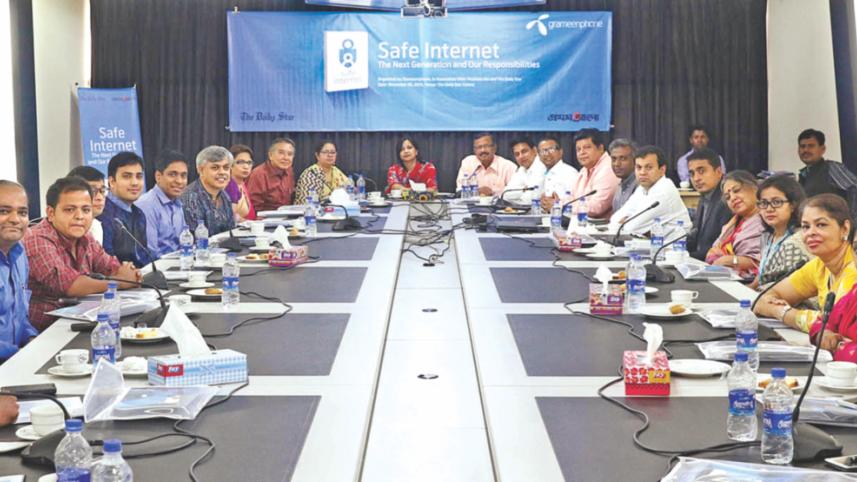
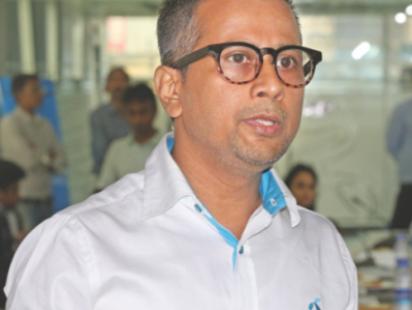
Debashis Roy, Head of Corporate Responsibility, Grameenphone
Research shows that when people get access to internet one out of ten is lifted out of poverty. Mobile network operators' contribution to our GDP is approximately 3% while globally 10% mobile penetration contributes .5% GDP growth. Bangladesh is ranked 149th out of 189 countries in terms of use of mobile internet, ahead of India and Pakistan. This is indeed a significant achievement for a country like Bangladesh.
We have an interesting story to share with you about how internet has facilitated quality education to reach remote areas where generally skilled teaching staff are not available. We have ten Online Schools in very remote areas across Bangladesh. Teachers of the Online School conduct classes from Teachers Center situated at Rayer Bazaar in the capital and they conduct classes using video conferencing technology with high speed internet connectivity. We are all familiar with Khan Academy which has been providing quality teaching materials to millions of students globally. We have taken an initiative to translate those tutorials into Bangla so that students all across Bangladesh can avail the benefits of Khan Academy. We hope by next year we will be able to launch the Khan Academy Bangla site.
Now we have more than 54 million internet users in Bangladesh. A significant proportion of them consist of the youth (85% within the age bracket 18 to 34). A research from Boston Consulting Group shows by 2017, 100 million new children will come online in 12 Telenor markets. Of them 85% will be accessing internet through smartphone.
We did a nationwide study on Internet Safety among young students to find their usage pattern as well vulnerability. A significant portion of them faced bullying, received nasty messages and requests to disclose personal information, particularly female users. Interestingly, when they face such situations they usually (67%) seek help from their friends instead of going to their parents and teachers. It is also true that they get very little help by approaching parents and teachers. Most of them hide their internet browsing experience from their parents.
To change this situation we need massive awareness campaigns. Parents and teachers need to talk with children about internet usage. We have to empower our young generation with knowledge and techniques to tackle the challenges of cyber insecurity.
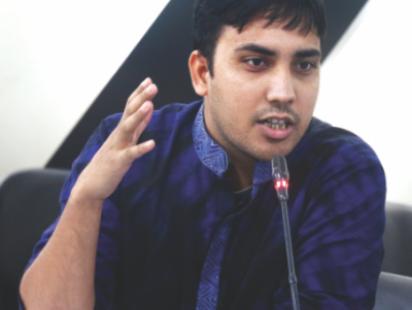
Ahsanul Alam, Student, Dhaka University
When students share with teachers problems outside their course curriculum most of the teachers do not show interest in talking about it. There is a gap between teachers and students. It is also true for many parents and their children. That's why young people feel comfortable sharing their problems with their friends instead of teachers and parents. We need to bridge this gap. Young people need to be heard.
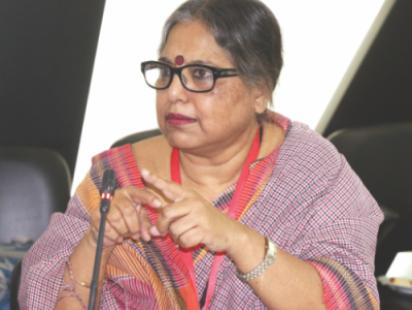
Laila Karim, Manager, Advocacy & Communications, Save the Children
We have to focus on positive parenting. It is different from disciplining children. Parents should give quality time to their children.
We do not see any mention about internet safety in our latest Child Act and Education Bill. It needs to be included in all the legal documents.
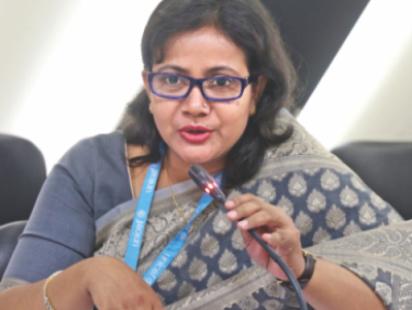
Jamila Akhter, Child Protection Specialist, UNICEF
Parents are not well-versed in internet technology. So they do not talk about this with their children. But you do not need to know all the technical details of technology; you can still guide your children through the social aspects. Over dependency on technology also affects creative faculties of our children which we need to consider carefully.
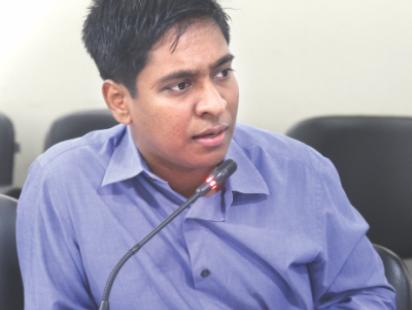
Ejaj Ahmed, Founder & President, Bangladesh Youth Leadership Centre (BYLC)
We see female updating "beautiful, attractive" profile photos. Why is being beautiful more important than being skilled and creative? Because in our society, a girl child grows up with the view that beauty is the most important asset of a woman. We need to change this perception.
Young people need to be made aware about disclosing personal information in social media because it increases their vulnerability to cyber harassment.
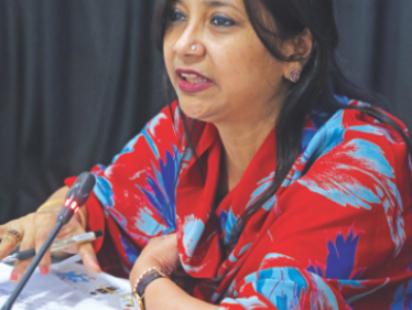
Tarana Halim, State Minister, Posts and Telecommunications Ministry
Safe internet is an integral part of cyber security. From the individual to society, everyone is vulnerable to this security threat. At the social level we see crimes such as forgery, pornography, sexual harassment, financial crimes, exposing youth to indecent elements, and spreading religious hatred via the internet. Women are the most vulnerable population group to these crimes. But they do not want to lodge complaints in fear of further harassment. A study reveals 73% female internet users have suffered from various types of cyber crimes. But only 23% lodge a report. We need to look into this issue seriously.
Counseling in schools is very important. I have found from studies that students think if they share any problem with the teacher, they will be treated negatively. If there were a counselor in every school students could have shared their problem with the person as a third person. Our mobile operators can provide this counseling service easily as they are already giving information about health and education.
I have been in charge of the telecom ministry for around four months. I have already taken an initiative to introduce internet safety solution which will filter problematic contents coming from outside the country. Most of the existing IIGs (International Internet Gateway) do not use appropriate DPIs ( Deep Packet Investigation). I have warned them that if they fail to install proper DPI system within the stipulated time their license would be cancelled. We maintain a database of internet service providers. Still there are many illegal internet service providers outside the list. For now we are giving them a chance to comply with the law and register in the database; otherwise, we will take stringent action against them.
We see women and girls being harassed online every single day. Through BTRC, we gathered and sent Facebook examples of many such instances. They sent us a report saying none of the content we sent was defamatory. But what's considered defamatory in Bangladesh may not necessarily be deemed defamatory in the US or elsewhere. Facebook doesn't have an office in Bangladesh. It's a problem because as a result the thousands of complaints that we send to them are never acted upon. They have also told us to file a case in court before submitting a complaint. Now, how can we ask a poor girl to go file a case that's going to cost her a leg and an arm? So I want to tell you that I am going to write to the Facebook authorities, and tell them that we are eager to ink a deal. They must strike a deal with us in order to fulfill their social responsibility. We have already taken the initiative and now we are looking towards its implementation.
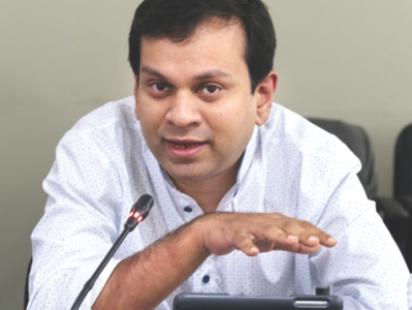
Asif Saleh, Senior Director, Strategy, Communications and Empowerment, BRAC
There will always be those who abuse the internet. The online world is a reflection of the patriarchal society we live in. Relative anonymity in the online space emboldens people to say things that they wouldn't otherwise in real life. After the Pahela Boishakh incident, an activist filed a case against a man who had posted on Facebook an obscene comment saying he'd rape any woman who shows skin in public. The case was filed under Section 57 and is still pending. Section 57 criminalises “obscene”comments but the definition of obscenity is unclear.
Outside the realm of law, we can work on social campaigns which can be divided into three parts. The first is prevention: what can we do before something like this happens? Second is immediate response: what can we do right after? And third is rehabilitation because things like this can have psychological damage, particularly to teenagers. We also need to sensitise schools on this issue and the culture of victim blaming; even parents and teachers in English medium schools are unaware of how to deal with it. We welcome initiatives taken by Telcos, governmental and non-governmental bodies. We are working with Grameenphone to hold workshops in 500 schools to raise awareness. Along with awareness, a support structure is necessary.

Yasmeen Habib, Principal, Sunnydale School
I have been with the school for 25 years and with time I have noticed notable changes in the behaviour of children nowadays. They are worse than robots. They spend most of their time chatting with friends on the computer. We found some really inappropriate things on children's phones--pornography, pictures, and messages. Kids see and learn whatever they see on the internet. I would like to inquire with Grameenphone whether they can provide SIMs that don't have access to internet. The media also must take responsibility for the kinds of ads they produce. There should be laws in the country that regulate ad content. The billboards in the country also represent women in an unacceptable way. Kids see and learn from this. The future, as I see it, is dark. We need to think about how to shape young minds in a positive way. Kids should be allowed to access the internet only after a certain age. Laws need to be stricter in cases of Facebook, internet usage, etc.
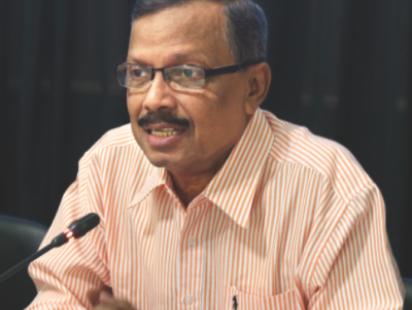
Salahuddin Ahmed, Development Practitioner and Moderator of the Session
Just because Facebook is blocked in China doesn't mean people there aren't using it. I've lived there for three years. They even have their own version of Facebook. Restrictions aren't the answer. What we need is to provide counseling to children and work on how the internet can be used in a proper way. We need to figure out a mechanism that stops children from abusing the internet.
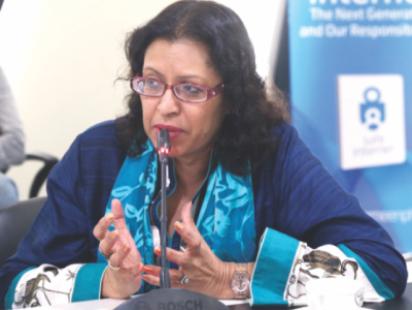
Shahamin S. Zaman, CEO, CSR Centre
We are addressing a lot of social problems related to kids and the internet. But I would like to highlight the United Nations Global Compact, the largest CSR platform. One of the principles of the Global Compact is the child rights and business principle. Along with Save the Children and European Union, we came up with a national CSR policy for children in Bangladesh -- that is Access to Child Rights. We cannot withhold information; we have to make it accessible to any child or any human being. As the Prime Minister has said, by the year 2021, Bangladesh will reach a new height of digitalisation. We have to make information accessible to become a middle income country. We need to find out the reasons why internet is unsafe. Awareness building, campaigning and monitoring are part and parcel of this process. State actors, parents, households all share this responsibility.
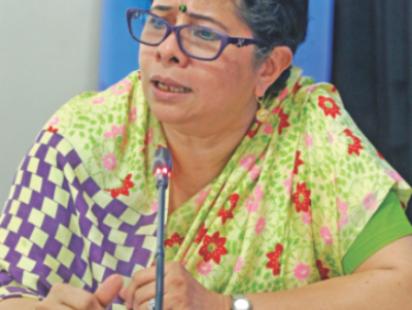
Rasheda K. Choudhury, Executive Director, Campaign for Popular Education (CAMPE)
Forty percent of those in secondary education are first generation learners. Their parents are not literate, let alone tech savvy. First, service providers and NGOs can help and educate them on the issue through courtyard discussions. These people can also be reached through microcredit programmes that are already in existence. Second, teacher training programmes are of paramount importance. For students aged 11-18 in schools, despite more subjects having been introduced, there's a severe lack in teachers. Because it's not possible to provide additional counselors, existing teachers can be trained in the art of counseling.
The sad part is that whereas around the world, education budget generally increases, here in Bangladesh, it is often slashed. It has come down from 14 percent in 2000 to 10 percent of the total budget. I would like to request the Posts and Telecommunications Ministry and Grameenphone to pay attention to advertisements and make a mention of the safety of internet. Just like mass texts of “Govt Info” are sent out, we can relay similar messages about safe internet. Internet has a considerable effect on socio-economic status. Primary question exams that are leaked online cannot be accessed by those in rural areas who do not use the internet. We need to make our education system knowledge-centric, not exam-centric since questions are often leaked.
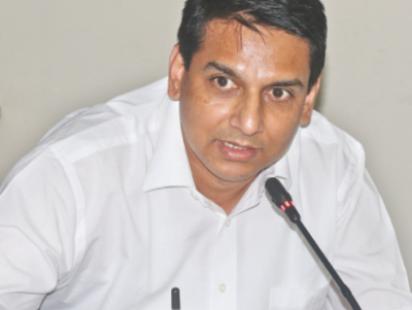
Mahmud Hossain, Chief Corporate Affairs Officer, Grameenphone
It's more of a non-technical problem than a technical problem. We have taken many initiatives like published a parent's guide to help parents on how to tackle internet safety related issues with their children while accessing the internet. We have also arranged internet safety workshops in 500 schools with BRAC. But there's a need for cooperation among all stakeholders. We have also installed a filtering system through which access to child sexually abusive contents will be blocked. This system is implemented by Interpol. Technical filtering can be expanded, without completely banning something, taking into account our social conditions and context. With the help of the civil society, we can come up with solutions and we will definitely do our part as a responsible corporate citizen. It is technically possible to shut down pornographic sites but we cannot guarantee that people won't be able to access it, because people can download VPN and unlock those sites. We are simply an implementation authority and a small fish in a big pond. We will also take into consideration suggestions of mass texts to raise awareness.
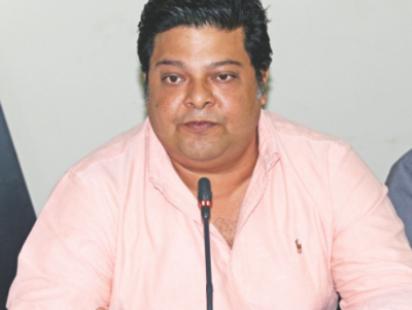
Nehal Ahmed, Director, Communications, Grameenphone
The objective of us gathered here today is to discuss on the means to safe internet, not prevention of internet. For every one instance of abuse of internet, there are 10 tremendously good uses of internet. The internet provides immense opportunities to create and innovate. The role that we have as parents is to become more aware and knowledgeable about the pitfalls and means of prevention. And that starts at home. But policing, preventing and banning do not work. People find a way around it.
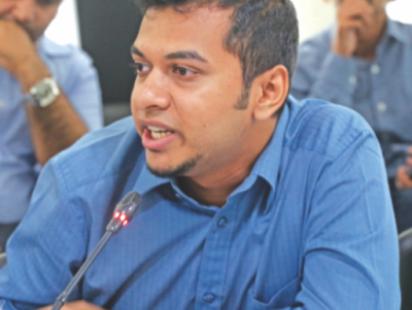
Jawad Mustafa Rashid, Student, BRAC University
I would like to ask the State Minister for Posts and Telecommunications a few questions. There's a tool you can buy to monitor activities on Facebook. Why aren't you using it? Like the Head of Communications of Grameenphone pointed out, why do we always talk about the cons of internet? Facebook is not the internet; the internet is huge and Facebook is just a part of it. So we cannot blame Facebook for all problems.
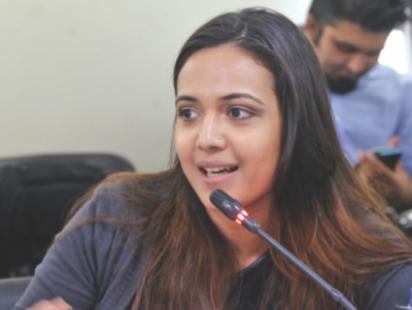
Lamisa Manzoor, Student, BRAC University
Children, from a young age, are taught to be scared and obey teachers. So we have to take these things into consideration before we ask why children tend to hide things from teachers and so on. We need to highlight the pros of the internet to steer children away from the negatives. Also, parents do not know how to use the internet or even Facebook. Teachers, parents who educate children and shape their minds need to be taught the uses of the internet and we really need to broaden our minds. Our perspective seems to be extremely narrow.
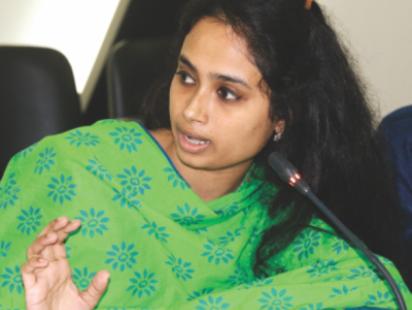
Mst. Zannatul Ferdous, Student, Dhaka University
The internet plays such a crucial role in our daily lives that it's impossible to think about living without it. We shouldn't just highlight the negative aspects of the internet. And the government has the responsibility to raise awareness, especially in rural areas, among parents. No one group can combat this alone, and everyone needs to cooperate.
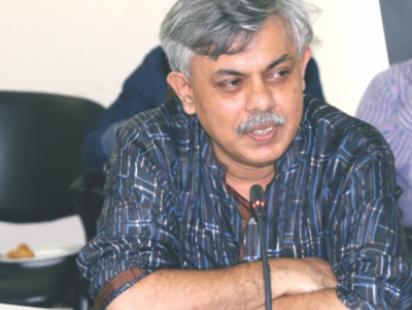
Anisul Haque, Associate Editor, Prothom Alo
This isn't just about children's safety, but also the state's and the individual's. The state has to be capable and resourceful to tackle the dangers on the internet. Terrorists are smarter than us. During the Shahbagh movement, Prothom Alo faced cyber attacks. It was tough to get the site up and running again. We don't have any specialised unit dedicated to fighting cyber crime. I would urge the government to address this with the help of IT sector and security division, and treat it as an integral part of our national security.
Mahfuz Anam, Editor & Publisher, The Daily Star
One of the most creative visions of the Prime Minister is the idea of a Digital Bangladesh. The internet represents freedom of thought and freedom of choice. We are internet immigrants, not internet natives. We don't know how everything works. But the human urge for freedom, for the multiplicity of choices, and for creativity will always exist. The internet plays a vital role in all this. The end note of this discussion should be one that's positive, as the internet has more virtues than vices. People do not want to live in a state that regulates people's private lives but at the same time the state has to be aware of the negative aspects the internet has, as is the case with any scientific innovation. We should do everything to encourage the use of the internet. Prevention will not work.
Tarana Halim
Since I took office four months ago, I have been doing every task with a timeframe and specified goals in mind. To answer the gentleman's question about why we are not importing the software, the answer is we are. But because of bureaucratic reasons and various formalities the process takes longer. There are things related to internet safety solutions, IIG and ISP data, etc.
The internet is definitely about freedom. Every single Bangladeshi native is free. Internet has revolutionised Bangladesh, and prevention is not the answer. But we are seeing the visible effects of not filtering out harmful data everyday. By the time we send out a complaint to Facebook and wait for a response, 100 girls may commit suicide. Every time we try to address an issue, other problems show themselves. For instance, in dealing with SIM registration, we found out about “spoofing” and “SIM cloning”. We must create a strong technical workforce of our own. Many brilliant tech students leave the country and provide services abroad. We end up hiring consultants spending millions in the process. We should be employing our own tech experts; we should use their skills to the fullest so that they can train others in the field of cyber security.



 For all latest news, follow The Daily Star's Google News channel.
For all latest news, follow The Daily Star's Google News channel.
Comments